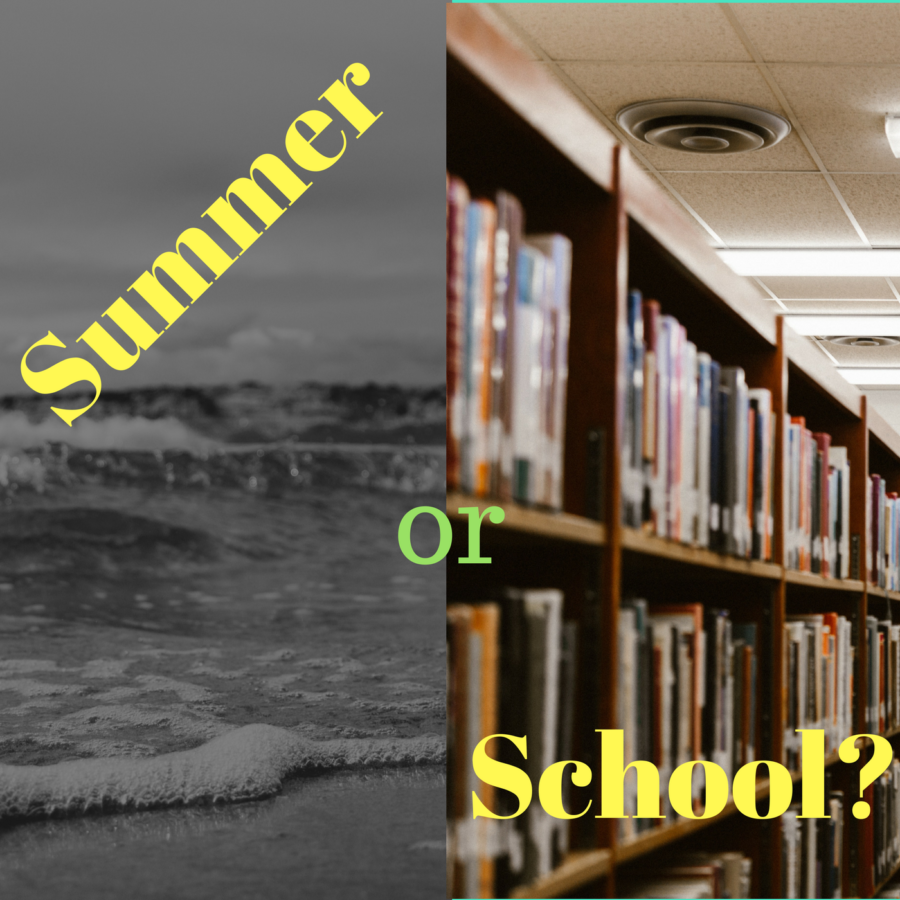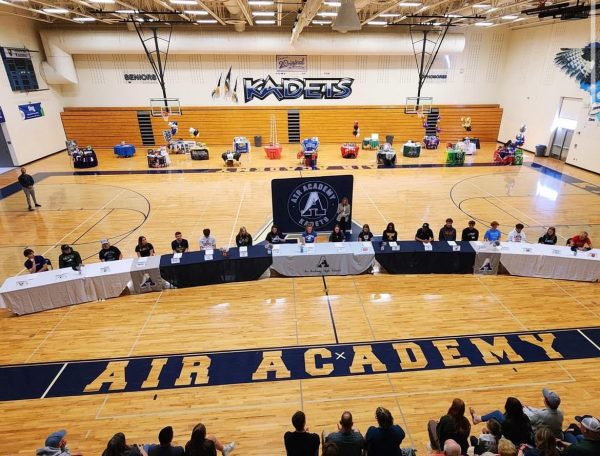Summer Bummer
With the school year coming to an end, Air Academy students have summer on their minds. Known for its sandy beaches, traveling, and sleepless nights, summer is the longest vacation of the school year.
“I love summer because it gives me the opportunity to travel and spend time with family,” says freshman Zoe Foster-Kirchgessner.
While summer is a treasured season for many, some suspect that it is essentially useless. Now, I know what you’re thinking: summer is a crucial and indispensable part of the school year. Granted, this statement may be true to some, but others claim that summer break is unnecessary and causes the brain to forget important lessons and information learned during the school year.
Year-round is the way to go for some. The constant breaks throughout the year help relieve stress on students and teachers. This schedule can also help to benefit students whose learning skills aren’t as advanced as others.
“A lot can be lost in relation to retention of knowledge with traditional schools. But having an end to the school year gives teachers and students the ability to start fresh each year,” says Mr. Hill, history teacher at AAHS.
Studies have shown that the average student can lose about one month of regular school learning and math skills, and about two months of reading skills over the summer. These breaks are, among other factors, responsible for the underachievement shown in traditional American schools.
On the other hand, summer can be beneficial. Some students use summer as a way to see their other parent if their parents are divorced, or even to work. Summer also gives time for personal improvement and decision-making, as well as college planning and other necessities. Plus, summer allows alignment in family schedules, while year-round schedules can be unpredictable for each grade level.
“Summer gives the opportunity for my family to travel and visit other relatives since we don’t live near one another,” say Heather Jones (my mom).
Compared to traditional schools, some believe year-round schools are burdensome. They feel as though the system asks a lot out of custodians and administration. It has also been said that the schedule gives teachers little time for classroom planning and prevents school fixtures from happening.
From all of this information comes the common debate of year-round schools versus traditional schools. Year-round school-goers essentially attend school for 45 days, (7 school day weeks) and then get a 3 week break. This cycle goes on for the whole year and prevents students from losing knowledge obtained during school days. Compared to this, 86% percent of schools in the United States operate on the traditional schedule. This means that students attend school, but get their standard holiday/seasonal breaks every few months.
Although year-round schools have a different schedule from traditional schools, their students attend for the same number of days as those that attend traditional school. Both year-round and traditional schools are in session for 180 days out of the year.
For young people whose educations are becoming more and more important to success later in life, the best solution is to balance some recharge time that the summer brings with educational enrichment. Pick a book or sharpen your math skills!

Hello there! My name is Leilani and I'm a Copy Editor for the Jetsream, and a senior at AAHS. I'm currently part of the Orchestra playing violin, and the...













